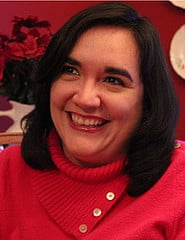
Orson Welles’ Intermedial Versions of Shakespearian Theatre, Radio and Film

![]() by Clara Fernandez-Vara on
by Clara Fernandez-Vara on


Clara is a game scholar, designer and writer. Her main research interest is the study of narrative in games and how it can integrate with game design, focusing on adventure games. She is particularly interested in applying methods from textual analysis and performance studies to the study of video games and transmedia artifacts. Clara’s videogame work is grounded in the humanities, informed by her background in literature, film and theatre. Her first book, Introduction to Game Analysis, has been published by Routledge.
Thesis: Orson Welles’ Intermedial Versions of Shakespearian Theatre, Radio and Film


